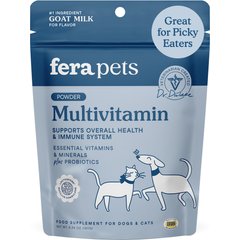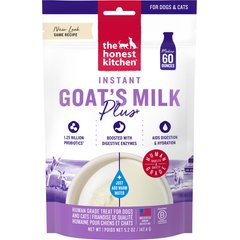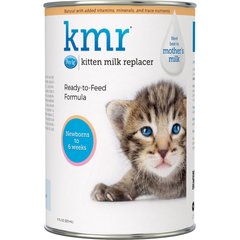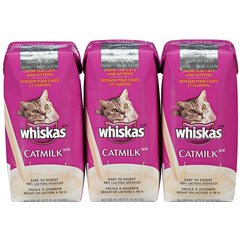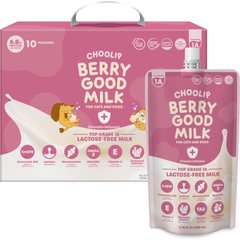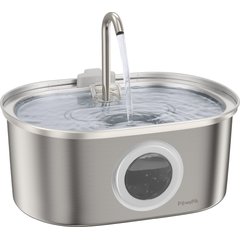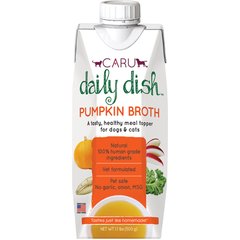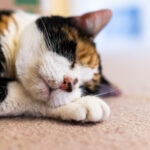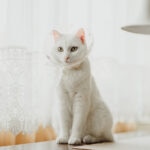Are Cats Lactose Intolerant? Can Cats Drink Milk?
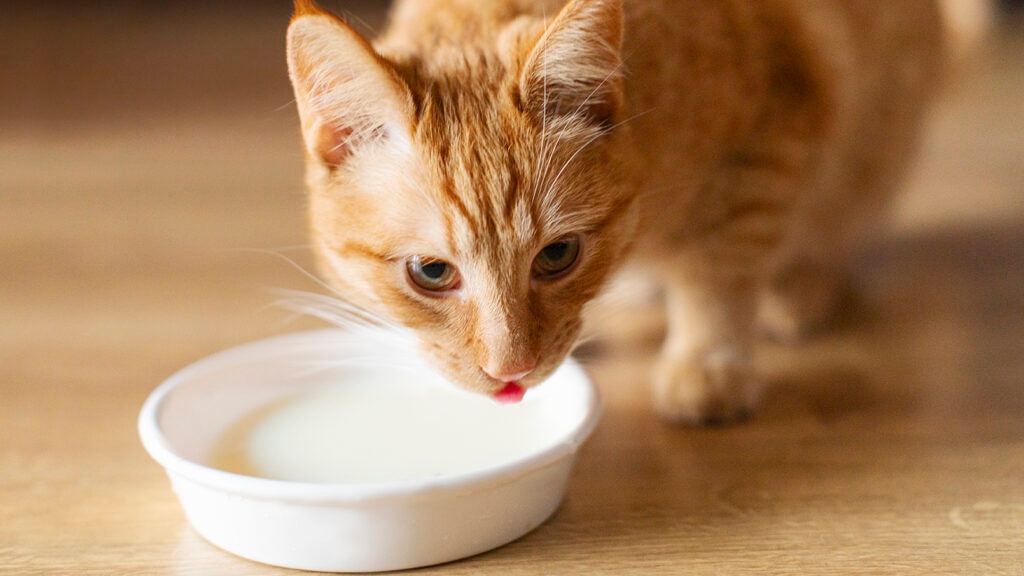
Photo by Olena Miroshnichenko/iStock/Getty Images Plus
A cat lapping up milk from a saucer is a classic image. (We blame you, “The Aristocats”!) Cats love the taste of milk, but is regular milk bad for cats? Are cats lactose intolerant or can some handle dairy without issues? Let’s find out whether milk and cats are a purr-fect match—or a recipe for tummy trouble.
Key Takeaways
- Most adult cats are lactose intolerant, meaning they can’t properly digest lactose (the natural sugar found in milk).
- If a lactose-intolerant cat consumes milk or other dairy products, they may experience digestive issues such as diarrhea.
- While some cats can tolerate small amounts of milk, it offers no nutritional benefit and is best avoided.
- Lactose-free milk made for cats is a safer alternative, but it should still be given only occasionally as a treat.
Are Cats Lactose Intolerant?
Much to the disappointment of dairy-loving felines, the answer is yes. Most cats develop lactose intolerance as they mature.
Like all mammals, kittens start life nursing from their mothers. During this time, their bodies produce plenty of lactase, the enzyme needed to break down lactose (the natural sugar in milk). But once kittens are weaned, usually around 8 weeks old, their production of lactase drops off significantly. And after the first year of life, the enzyme is no longer produced in most cats.
Without lactase, cats can’t properly digest dairy. When a lactose-intolerant cat consumes milk or other high-lactose foods, the undigested sugars pull water into the intestines, often resulting in diarrhea. The undigested lactose can also ferment in the colon, causing stomach upset, and may even reduce the digestibility of protein in their overall diet.
Common signs of lactose intolerance in cats include:
Can Cats Drink Milk?
Although some cats may tolerate small amounts of milk, it’s a gamble that often ends in a messy litter box situation. Milk is high in lactose, and most adult cats can’t properly digest it.
Types of milk that are unsafe for cats include:
- Cow’s milk (whole, skim, or low-fat): high in lactose and likely to cause digestive issues
- Cream or half-and-half: even higher in fat and lactose, which can upset digestion and contribute to weight gain
What about goat’s milk and sheep’s milk? These alternatives are often easier for cats to digest due to their slightly lower lactose content and smaller fat molecules. Some pet parents report success with goat milk products, such as Fera Pets Multivitamin Goat Milk Topper or The Honest Kitchen Daily Boosters Instant Goat’s Milk, in moderation.
Recommended Products
That said, goat’s milk and sheep’s milk still contain a significant amount of lactose and can cause stomach upset, especially in sensitive cats. So, while they might be better tolerated, they’re not a guaranteed safe option for every kitty.
Can Kittens Have Milk?
Kittens can only drink their mother’s milk (or a specially formulated kitten milk replacer if the mother isn’t available). A mother cat’s milk (or a replacer) provides the right balance of nutrients and antibodies that kittens need to grow.
Recommended Product
Cow’s milk, goat’s milk, and sheep’s milk are not appropriate for kittens. They don’t have the right nutrient profile and contain more lactose than a mother cat’s milk, which can cause digestive upset.
If a kitten needs supplemental feeding, always use a vet-recommended kitten formula—not dairy milk.
Is Milk Good for Cats?
While milk is often portrayed as a suitable treat for felines, milk is generally not good for cats, as they can’t digest it properly.
On top of that, there’s no real benefit to giving your cat milk. Cats are obligate carnivores, which means they get all the nutrients they need from a balanced, meat-based diet. If your cat is eating an age-appropriate, complete diet, they’re already covered—there’s no need for the extra protein, fat, or calories that milk provides.
In fact, the People’s Dispensary for Sick Animals (PDSA) compares giving your cat a saucer of milk to you polishing off an entire 12-inch pizza on top of your daily calorie needs. Tempting as it may be (and let’s be honest, most of us have been there), it’s hardly a healthy choice and can contribute to weight gain.
Is Milk Bad for Cats?
Yes, regular cow’s milk is considered bad for cats. However, it’s important to understand what is meant by “bad.” Cats are not allergic to dairy; they’re intolerant to it. Food allergies involve the immune system, where even tiny amounts can cause serious or life-threatening reactions.
Food intolerances, on the other hand, mainly affect the digestive system and usually result in milder symptoms. So, while cats may experience vomiting or diarrhea after eating dairy, it’s not usually life-threatening.
That said, digestive issues can leave your cat feeling uncomfortable. In more severe cases, diarrhea can lead to dehydration, which can be a serious condition. For these reasons, regular milk isn’t recommended for cats, even as an occasional treat.
Can Cats Have Lactose-Free Milk?
Milk-loving cats don’t have to miss out completely: Lactose-free milk can be a safer alternative. Because the lactose is removed or broken down, it’s much less likely to cause digestive issues. Just keep in mind that it’s still a treat, not a necessity; it doesn’t offer any nutrients your cat isn’t already getting from a complete, balanced diet.
A couple popular lactose-free milks include Whiskas Catmilk and Choolip Berry Good Milk.
Recommended Products
My Cat Drank Milk—What Do I Do?
If your cat gets their paws on milk, don’t worry—most situations aren’t serious. Here’s what you should do next:
- Avoid offering more milk. Don’t give additional milk, even if your cat seems to enjoy it.
- Monitor for symptoms. Keep an eye on your cat for the next 12–24 hours for any signs of digestive upset.
- Provide fresh water. Ensure your cat has plenty of clean water available to stay hydrated. To encourage your kitty to drink more water, try using a cat water fountain, like the PawsPik SS-01 Stainless Steel Cat Fountain.
Recommended Product
- Clean the litter box regularly. This helps you track any changes in stool consistency or frequency.
In most cases, lactose intolerance resolves on its own without treatment. However, if symptoms are severe or last more than a day, your cat may become dehydrated and require veterinary attention.
Contact your veterinarian if you notice ongoing diarrhea, vomiting, or dehydration signs, such as lethargy, dry gums, or reduced urination.
FAQs About Cats and Milk
Why do cats love milk?
Cats are often drawn to milk because of its fat and protein content, which gives it an appealing smell and taste. They might also associate the flavor and scent with positive memories of drinking their mother’s milk as a kitten.
What percentage of cats are lactose intolerant?
While an exact percentage is not known, most experts agree that most cats are lactose intolerant to some degree. As cats mature, their bodies naturally produce less lactase, the enzyme needed to digest lactose. That said, some cats retain the ability to tolerate milk well, but they’re the exception, not the rule.
What can cats drink instead of milk?
The best and healthiest drink for cats is always fresh, clean water.
If you want to give them a special treat, lactose-free milk products made specifically for cats are a safe alternative. Some broth-style cat treats, such as Caru Daily Dish Pumpkin Broth Wet Food Topper, can also be a tasty option.
Recommended Product
